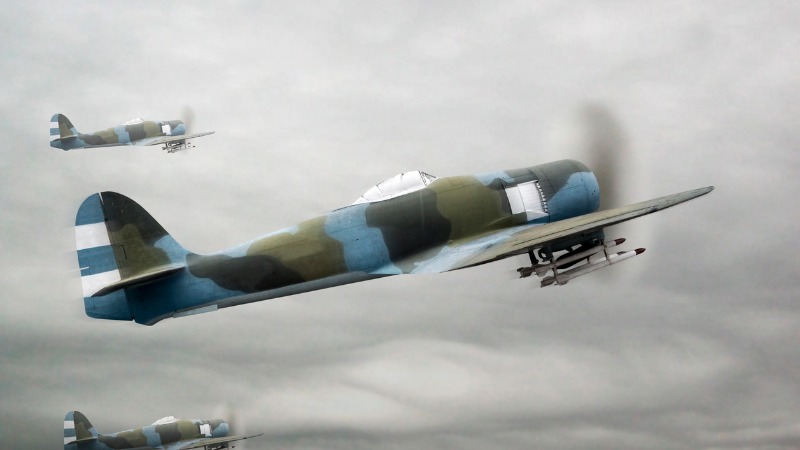
When you hear the word Kamikaze, you think about Japanese suicide bombers during World War II. Kamikaze bombers flew their planes into enemy bases and ships, sacrificing their own lives in the process.
According to the National Geographic, the Japanese Empire started deploying Kamikaze bombers in the latter stages of World War II, in October of 1944. It was a desperate policy meant to turn around the tide of the war — around 3,000 Kamikaze pilots killed around 7,000 casualties, and it was used first during a Naval battle near the Phillippines.
So contrary to popular opinion, Kamikaze pilots were a last resort rather than the go-to option for the Japanese military. And while they achieved some minor victories, they didn’t turn the tide of the war.
But in Japanese, Kamikaze actually means “divine wind,” as “kami” means god and “kaze” means wind. And the origin of the word came from the Mongol invasion of Japan when the Mongol fleet was almost entirely destroyed by a ferocious wind, rather than a military rout by the Japanese.
Kamikaze means divine wind, but the word originates from typhoons that miraculously destroyed the Mongol army.
The Mongol invasion of Japan
According to the Web Chronology Project, Kublai Khan, the grandson of Genghis Khan, controlled China and the Yuan Dynasty. Kublai Khan was looked down upon because he ruled as a Chinese emperor rather than a Mongol warlord, and he also engaged in a civil war with his nephew, Kaidu Khan.
Kublai was, however, hellbent on expanding the reach of his uncle’s empire. He wanted to invade both Vietnam and Japan. While the Yuan Dynasty controlled virtually all of China, Kublai expanded into Korea very fast and conquered it easily.
The problem was the Mongol Empire, for all its dominance on land didn’t have a good fleet.
And so Kublai Khan preferred not to invade Japan. He would instead send envoys to threaten the country or have the country risk invasion.
Japan considered the proposal, then ultimately denied it. The nobles of Kyoto were ready to surrender, but the military shogunate was not ready to back down. The famed Japanese samurai were ready to defend their country.
This ended up being the right choice. Japan would try to invade numerous times but would fail each time, but Japan’s prospects didn’t look that way at first.
In 1274, the Mongol fleet of 900 ships and 40,000 trips came to Japan. They made some very quick advances on Tsushima and Iki Islands and then advanced on Hakata Bay, on the island of Kyushu.
The Japanese were no match for the Mongol cavalry and explosives. The Japanese retreated to Dazaifu, a northern city on the island.
The Japanese seemed screwed. But then a huge storm destroyed the Mongol fleet, and this left Mongol soldiers stranded. Soon, over 13,000 Mongol soldiers were killed, and the Mongols failed in their invasion.
The Mongols would attempt another invasion of Japan in 1281. This time there were a lot more soldiers and ships — including 4,000 ships and 140,000 soldiers, according to historian James McClain. They would come with two large armies in their second invasion of Hakata Bay. Another typhoon destroyed the Mongol fleet, leading to another destruction of the Mongol army.
Japanese poetry would later refer to the storm as “kamikaze.”
Takeaways
Vietnam would also resist Mongol invasion. At the time, Vietnam was known as Đại Việt. But like the Vietnam War, the Mongols were extremely unsuccessful. The Vietnamese were very good at guerrilla warfare in their jungles. The Mongol general Uriyanghadai captured the capital of Thang Long, which today is known as Hanoi.
But the Vietnamese anticipated the invasion. While the Mongols sacked the city, the Vietnamese Tran Dynasty destroyed Mongol supply ships and lines, burning fields of crops along the way, leading to the subsequent starvation and war of attrition that led to a Mongol defeat. A huge Mongol fleet was destroyed by the Vietnamese.
With major defeats in both Japan and Vietnam, Kublai Khan’s reputation trying to expand his grandfather’s conquests was decimated. He would fail to expand the Yuan Dynasty beyond the initial invasions of the Song Dynasty.
At the time, the Mongol Empire had a reputation for being unbeatable and unstoppable conquerers. “Kamikaze” was a coining of the divine intervention in defeating them.
—
This post was previously published on MEDIUM.COM.
***
You may also like these posts on The Good Men Project:
 White Fragility: Talking to White People About Racism White Fragility: Talking to White People About Racism |
 Escape the “Act Like a Man” Box Escape the “Act Like a Man” Box |
 The Lack of Gentle Platonic Touch in Men’s Lives is a Killer The Lack of Gentle Platonic Touch in Men’s Lives is a Killer |
 What We Talk About When We Talk About Men What We Talk About When We Talk About Men |
Join The Good Men Project as a Premium Member today.
All Premium Members get to view The Good Men Project with NO ADS.
A $50 annual membership gives you an all access pass. You can be a part of every call, group, class and community.
A $25 annual membership gives you access to one class, one Social Interest group and our online communities.
A $12 annual membership gives you access to our Friday calls with the publisher, our online community.
Register New Account
Log in if you wish to renew an existing subscription.
Need more info? A complete list of benefits is here.
—
Photo credit: iStock.com
The post Where the Word ‘Kamikaze’ Comes From appeared first on The Good Men Project.

